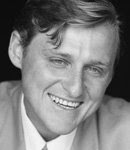I've made several references to the idea that our 'distorted ego mind' is what separates us from the awareness of grace. In many schools of thought the poor old ego is blamed for pretty much every moment of suffering we experience. I want to clarify that the ego is not actually at fault for the current human condition, it's as much a victim of the situation as anthing else. The problem is what happens to distort the ego when it emerges in a society that actively works to disconnect it from reality.
What is the Ego?
Sigmund Freud first gave us the modern conception of the ego. He divided human consciousness into three segments called the Id, The Ego and the Super Ego. The Id represents our instinctive and unconscious nature, our feelings, instincts, passions, and drives. He speculates that the id operates on the pleasure principle, seeking instant gratification for our various hungers, desires and impulses. He then posits that the Id is kept in check by the actions of the Ego, which operates on the 'reality principle', meaning that it adjusts our behaviours to the situation in order to avoid the problems that can occur if we were simply to act on every impulse. The Ego is partly in conscious awareness, and partly unconscious. Freud recognised that both the Id and the Ego were engaged in the same job, that of serving our interests and maximising our chance of getting our needs met. No problem so far.
Then we discover the Super ego. Freud allocated this the role of our conscience, that which constantly and critically examines our behaviours and thoughts against a 'moral' standard and try's to make us behave within the constraints of this ethos. This seems to be where the problem arises, the Ego ends up as the meat in the sandwhich, trying to serve two masters who seem eternally opposed to each other. The Id pushing for gratification and the Superego trying to constrain it with guilt and shame. It's unclear to me whether Freud believed that the superego was a natural and unavoidable development in consciousness, but I have come to believe that the presence of the super ego is a distorted emergence leading to what I'm calling the 'distorted ego mind'.
Freuds conception of the Id as being basically selfish and irresponsible, and therefore in need of constraint, seems to me to be essentially flawed. Certainly our passions drive us towards gratification, but our feelings also inform us of our limitations and our other needs. We come to organically understand that all of our actions have consequences and that those actions that are destructive also hurt us. It is through this that our Ego evolves in it's strategies for meeting our needs and naturally tempers the urgings of the Id with awareness and responsibility. One might say that they are are perfect team, with the Id supplying the destination and the Ego planning the journey.
The Super Ego on the other hand seems to be the result of imposed messages given to us by others, who wish to control our development and move us towards a destination of their choosing. Many modern cultures, particularly those who are being heavily influenced by religions, seem to be contructed to separate us from our natural relationship with the Id. they teach us that our instincts and our organic nature are not to be trusted. This leads to a situation where the Ego, in it's attempt to adapt to the prevailing environment, becomes dissociated from our innate faculties of feeling, desire and instinct. In doing so it becomes dissociated from grace, which is the source of these guiding and motivating forces. This leads to the emergence of a false 'self concept', an insane identity struggling to maintain itself in an insane world, and defend itself against the urgings of our true self (which it now believes to be the enemy).
This separation from our natural self leaves our ego floating rudderless in a sea of external messages. Without access to our feelings and instincts we are vulnerable to the manipulations and demands of others. We can no longer feel the right path for us and are constantly trying to make sense of a world map drawn by other hands. We are trying to navigate life without the benefit of our natural emotional compass. If we also accept ohter peoples conceptions of the divine, rather than trust our own innate relationship with it, we are sailing in a world where we cannot even see the stars for guidance.
The irony of course is that it is by complying with other peoples conceptions of 'The will of God' we become separated from our innate relationship with God's Will in us. Perhaps grace speaks to some through burning bushes, but for most of us it is through inner listening that we discover the truth. In fact, finding true grace requires of us that we reject these imposed mesages of sinfulness and shame to reconnect with our own being. We need to reconcile our Ego to our Id and remove the ever critical super ego from the throne of our consciousness. Jesus of Nazareth said that "to enter the kingdom of heaven, we must become as a small child", which is a lovely way of saying that we need to find the innocence that we once knew, before we were overcome by the impositions of others.
Ego really is not the problem. It is what happens to distort our ego that causes our suffering. Fortunately, through communion with grace this distortion is gently and irrevocably healed so that we can once more live in the flow of the true power and beauty of our being. This is a process that John Bradshaw calls 'recovering from toxic shame', which I'll be talking about in the next blog.
Grace be with you.




No comments:
Post a Comment
Let me know what you think, tell me your stories.